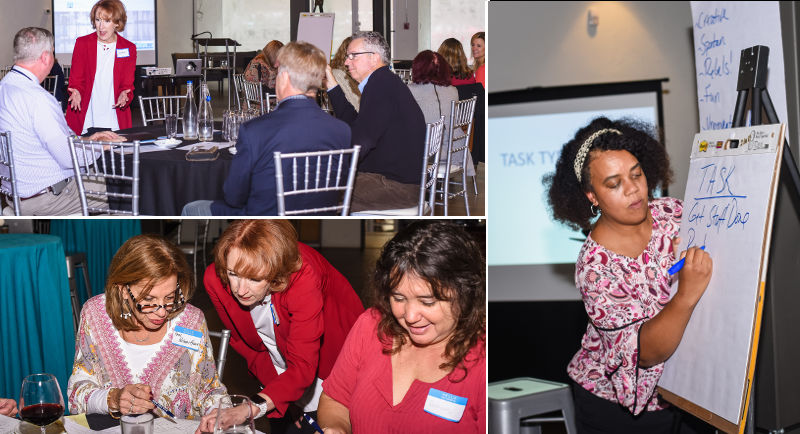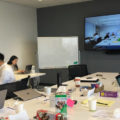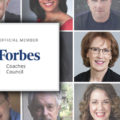As an executive coach, I use the PeopleMap™ assessment tool to help individuals and teams learn to work together more effectively.
PeopleMap™, similar to Myers-Briggs or the DISC, is a user-friendly assessment tool to help people understand how personality styles affect their interactions with others. PeopleMap utilizes just four styles: Leader, Task, People and Free Spirit.
Recently, I facilitated PeopleMap™ workshops in three different settings: a division within a university, an HR department at the corporate headquarters of a bank, and a group of entrepreneurs at a public training.
The personality styles revealed in these three groups were very different from one another.
Observations from the three diverse groups
The culture of the university division consisted of a lot of folks with “People” and “Task” styles. There was only one “Leader” style and three “Free Spirit” styles among nearly 40 people! This is a culture with a vulnerability to burn out because “People” styles put others first and “Task” styles may overwork; plus with least preferred “Leader” style, they may have difficulty in speaking out directly when in conflict or about their needs.
The HR banking culture was very diverse. In fact, almost 25% of this group had a “Leader” style. In an HR Division, it makes sense that there might be a lot of diversity because you need both process-oriented and people-oriented styles, as well as people who can see the big picture (“Leader” styles) and people who are naturally innovative (“Free Spirit” styles).
Finally, in my public workshop with many entrepreneurs in attendance, a whopping third of the group had the “Free Spirit” style and only 10% were “Task” styles. At this workshop, one owner of a business brought her senior associate with her—it turns out that they were both “Free Spirit-People” styles. The owner reflected that their styles “perfectly reflected” the brand of her store; her store is described literally as a “fun and friendly place” which perfectly embodies the “Free Spirit-People” style. In general, entrepreneurs have a lot of “Free Spirit” energy (and often “Leader”) because they are willing to take risks and are often highly creative.
What’s the ideal composition for a team?
There have been efforts in both research and applied settings to figure out the ideal composition of personalities that make up the “perfect” team. Google spent over two years on Project Aristotle, crunching data the way only Google can and came to the conclusion that there is no ideal combination of personality characteristics.
There are data suggesting that more diverse teams (including personality characteristics, age, gender, ethnicity, etc.) are more innovative than more homogenous teams. Understandably, diverse teams struggle more at the beginning with developing into a highly effective team because of challenges in establishing trust, in learning to communicate well with one another, and in resolving conflict effectively. But in the end these teams do better than teams with members that are more similar to one another.
Google also discovered what Harvard researcher Amy Edmondson had found in the late 1990s, that what is vital in becoming a high performing team is the concept of “psychological safety,” which means primarily the ability to speak up without fear of retribution or embarrassment. Psychological safety is thought to be vital to developing trust, which is essential for resolving conflicts. Conflict is normal and occurs in every relationship and on every team. Managing it well is key to the achievement of team goals.
What did I conclude from leading PeopleMap™ workshops with three very different groups of people?
- Personality matters. While tools like the PeopleMap™ don’t say everything about who we are, they do say something important about who we are and how we like to be treated. The PeopleMap™ provides us with a roadmap for building better ways to communicate and resolve conflict with one another so that we can achieve our goals.
- Different industries truly attract different kinds of people. And often when we are hiring, we tend to hire people who are like ourselves, even though research shows that greater diversity leads to more innovation. This bias towards people like ourselves makes it clear that we need to look instead for ways that differences with others can help us to solve problems more creatively. It illuminates the need for respect and appreciation for people who relate and create differently than we do.
- We all want to be known and understood and appreciated for who WE are. We need to acknowledge and recognize our unique strengths and style.
- That said, we all have our vulnerabilities to the “dark side” of personality as organizational psychologist Robert Hogan calls it—where our strengths overused can become a weakness, or where our blind spots can derail our success. We need to learn to appreciate feedback. There are no perfect people out there, and while we can’t eliminate weaknesses, we can be mindful and intentional and limit their impact.
- As the philosopher Ralph Waldo Emerson said, “Every individual nature has its own beauty.” Let’s all commit to becoming the best version of ourselves.
What does your team makeup look like? How could your team be working better together? What might help you be the best leader you can be in your organization? Contact us today to see how we can help!







0 Comments